![]() — Home — Business News
— Home — Business News
Weekly Business News from Myanmar
-
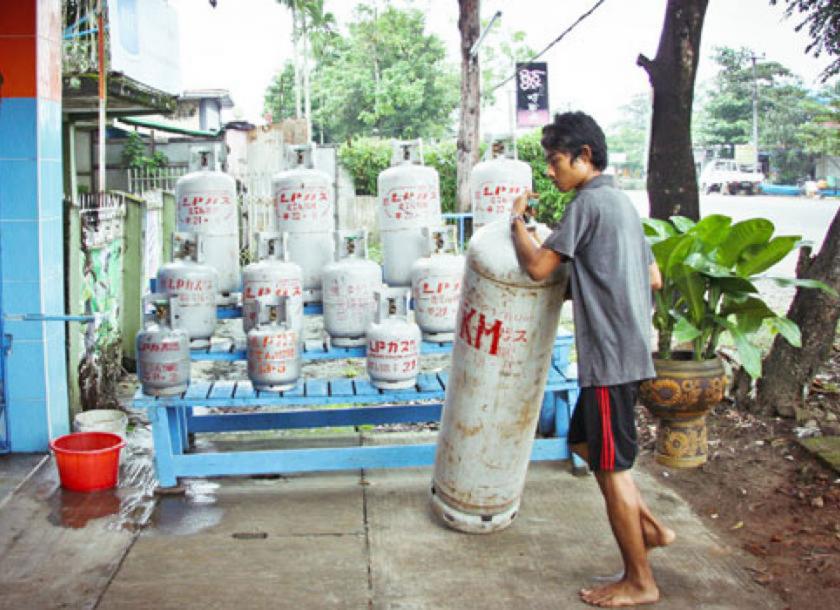
Asia AVA Gas Company formed a joint venture with Myanmar Petrochemical Enterprise (MPE) to build LPG facilities in Myanmar
Asia AVA Gas Company has entered into a joint venture with Myanma Petrochemical Enterprise (MPE), which falls under the remit of the Ministry of Electricity and Energy (MOEE) to undertake a project enabling the import, storage and distribution of liquefied petroleum gas (LPG) in Myanmar, Daw Yin Yin Aung, deputy director of MPE, told The Myanmar Times. Asia AVA Gas Company, in turn, is a JV between Singapore’s AVA Kahyasis Investment and domestic firmsSky Construction Company Ltd and Guiding Star Group Ltd. The project will include construction of a jetty, storage tanks, loading and unloading facilities and a gas-filing plant. It will involve an initial investment of $60 million and be developed across 32 acres of privately-owned land near Bogyoke Village, which is in Thalyin township, Yangon. The permitted duration of investment is 50 years. The project, which received Myanmar Investment Commission approvalin 2016, has already completed the necessary topographic surveys and soil tests. -
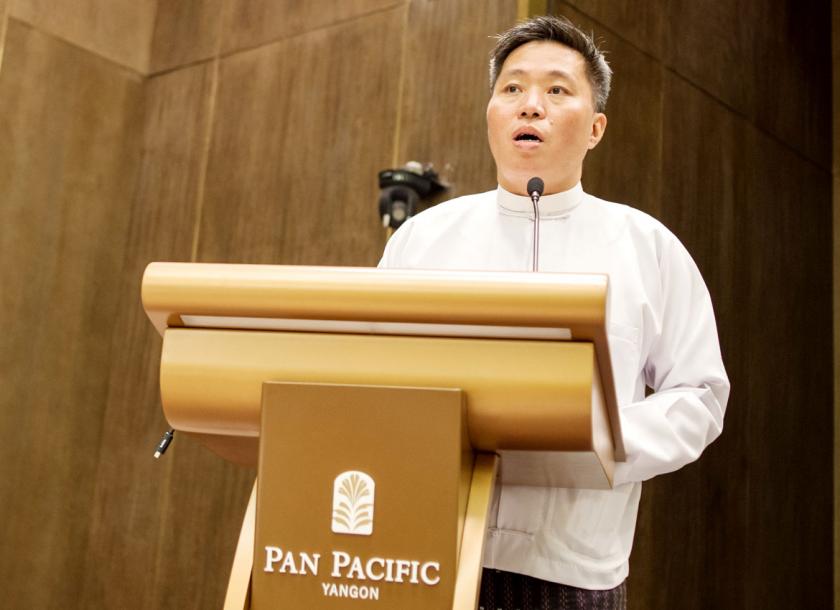
Shwe Taung Groups is involved in a Public Private Partnership (PPP) to develop the Yuzana low cost housing project in Dagon Seikkan
Infrastructure developers at Dagon Seikkan township, Yangon Region, have experimented successfully with modern construction techniques aimed at saving time and costs as well as building sustainable living conditions. Last week, local real estate developer Shwe Taung Group, which is involved in a Public-Private Partnership (PPP) to develop the Yuzana low cost housing project in Dagon Seikkan, announced the completion of seven five-storey residential blocks using construction technologies developed in Singapore. Six of out of the seven completed apartment blocks were built using Singapore-listed construction firm Tiong Seng Holdings’ semi-precast methods, while the seventh utilised the company’s Prefabricated Pre-finished Volumetric Construction (PPVC) technologies. -

Myanmar's reform program and infrastructure plan to improve its investment environment and stimulate growth are explored in "The Report: Myanmar 2018" by the global research and consultancy firm Oxford Business Group (OBG)
Myanmar’s efforts to enhance its investment environment and stimulate growth through a series of wide-ranging reforms are explored in a new report from the global research and consultancy firm Oxford Business Group (OBG). As the country approaches the two-year anniversary of its first civilian-led government, The Report: Myanmar 2018 charts the impact of efforts to create regulatory certainty for investors through landmark legal developments such as the Investment Law, Companies Law and Condominium Law. The report also charts the country’s progress in plugging its vast infrastructure gaps in order to improve nationwide productivity and galvanize the construction, logistics, trade, and tourism sectors. Key issues examined include the steps being taken to tap a broader range of financing mechanisms, such as public-private partnerships, concessional loans from development partners, and treasury bond issuances, for the country’s planned port, rail and road works. In addition, OBG’s publication tracks the latest developments in the property market, which is poised for a period of heightened activity once remaining ambiguities on foreign ownership of residential apartments are clarified. -

The Indian government signed an agreement on the construction of the India- Myanmar- Thailand trilateral highway to boost trade and cultural exchange between the three countries
The India–Myanmar–Thailand Trilateral Highway is that will connect India with the ASEAN region. The highway will link Moreh in Manipur state (India), via Mandalay city (Myanmar) and to Mae Sot district (Thailand). India Government has signed agreement on construction of the highway according to Business Standard news agency. The 1,400-kilometre-long highway that will link India with Southeast Asia by land for the first time in decades, giving a boost to trade and cultural exchanges between the three countries. National Highway Authority of India (NHAI) has checked companies that won tender for construction the project for four months. Among these companies, Punj Lloyd and Varaha Infra companies were chosen and the two companies will cooperate in construction the highway.It is estimated that Rupees 771 billion will be invested in the project. -
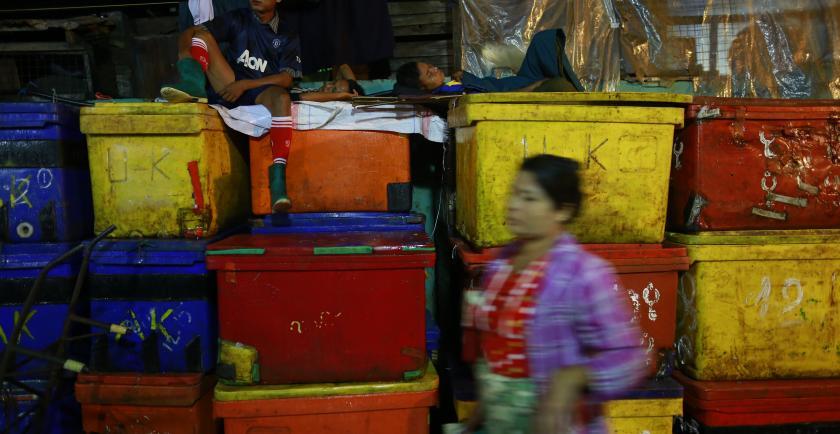
Minister of Planning and Finance plans to grant K100 billion loans for fishery sector development following the Myanmar Fishery Federation's request for low interest rate loans during the regular meeting between the Vice President and local businesses
The Ministry of Planning and Finance is planning to grant K100 billion in loans to help fishery sector develop. Myanmar Fishery Federation called for low interest rate for the loans at the regular meeting between Vice President No.1 and local businesses. The ministry will give loans for fish seeds, prawn seeds, land and SMEs when necessary. “If we get the loans, we will use them for necessary things such as investments for increasing fish and prawn production, technology and export,” U Htay Myin, President of Myanmar Fishery Federation, said. With the plan of increasing Myanmar’s fish and prawn production, businesses are planning to increase fishery products export up to over $2.3 billion in next one or two years. Private sectors will invest in using technologies and building fishery farms, fish food production facilities, cold storage facilities and value added factories to export good quality products. This will also create up to over 100,000 job opportunities as construction processes will be implemented using both local workers together with foreign experts from the countries such as Indonesia, Taiwan and China. -
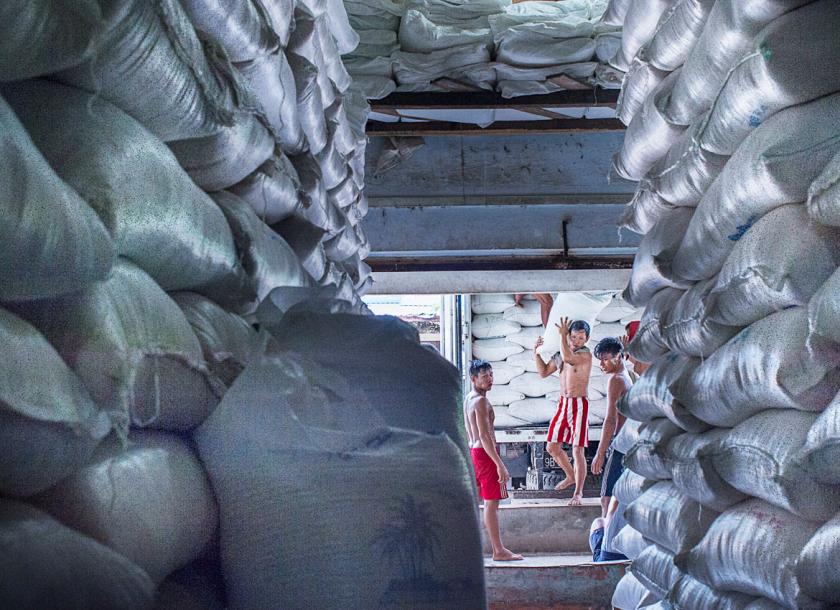
In order to meet the urgent need for storage facilities across Myanmar, the outdated regulations prohibiting construction of modern warehouses should be reformed immediately (U Aye Thaung, Chair of Shwe Lin Ban industrial zone)
Despite an urgent need for storage facilities across Myanmar, there are still numerous empty warehouses at vacated industrial sites. At the same time, outdated regulations prohibiting construction of modern warehouses at industrial zones should be reformed immediately, said U Aye Thaung, chair of Shwe Lin Ban industrial zone. “In other countries, services that support the main industrial, agriculture and manufacturing sectors such as logistics, distribution and marketing are given top priority. But in Myanmar, many warehouses are left vacant and the support services sector is still not developed,” he said. That has to change in order for the economy to expand further. In Yangon, most warehouses are located inconveniently far away from the industrial zones, which adds to transport and logistics costs. Currently, warehouse facilities are usually leased in Shwepyitha, Dagon Seikkan, Hlaingthaya and Thaketa townships in Yangon. “When leasing a warehouse, the location is important. For example, it is very convenient for CityMart in Thaketa to have a warehouse within the same area,” said U Nay Lin Zin, joint secretary of the Myanmar Rice Federation. -
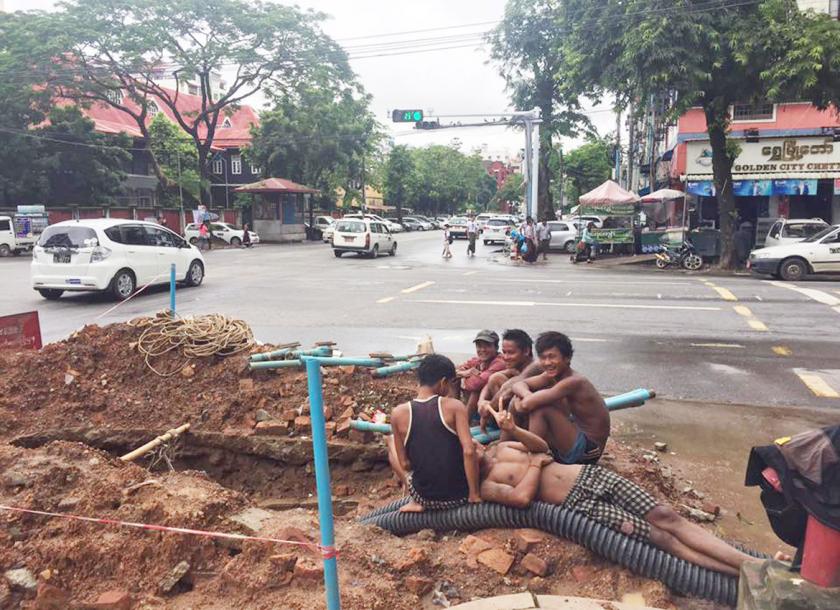
Myanmar insurance sector will be liberalized to attract expertise, technology, and development: the Myanmar insurance market is hugely untapped and big opportunities lie in health insurance
Insurance providers in Myanmar can expect a more competitive and promising landscape on which to do business in the near future. With market liberalisation, which will enable firms to offer a wider variety of insurance products, on the government’s agenda, local and foreign providers alike have already started training staff and building management and IT systems to prepare for growth. However, regulations paving the way for the needed range of products and to end state-controlled pricing over existing ones are still lacking. Meanwhile, a timeline on when an approved regulatory framework addressing how local insurance providers can work with foreign firms has so far been elusive. Liberalising the insurance sector is important not just because penetration rates in Myanmar remain the lowest in the region. Enabling global insurance providers to operate here will help the country develop a deeper bond market, enabling the government to raise sovereign debt to plug the budget deficit. The government currently relies heavily on central bank borrowing to fund the deficit, which leads to high inflation. Insurance firms are among the biggest investors in sovereign bonds. -
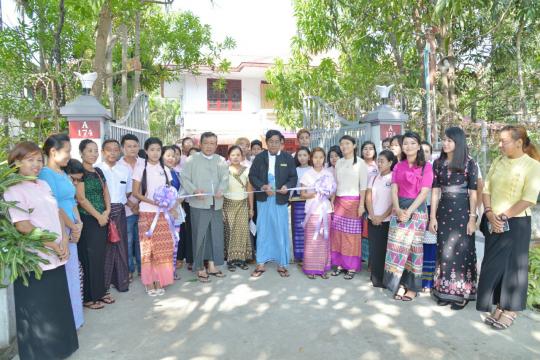
The Confederation of Trade Unions in Myanmar (CTUM) has established a Women Workers' Centre in Yangon to empower female workers in their profession
WITH the income generated by women much needed for the support of their families owing to a 37.5 per cent poverty rate, Myanmar’s largest workers organisation – the Confederation of Trade Unions in Myanmar (CTUM) – has opened a Women Workers’ Centre in Hlaing Thar Yar township of Yangon region. CTUM’s president MaungMaung said the centre would be open daily to provide female workers with knowledge essential to improving productivity in their profession. He expected the centre to play a key role in fulfilling the needs of Myanmar’s female workers. “It is like a meeting point for women to share experiences and to be empowered to get involved,” he said. “Before opening this centre, we tried to find out what the problems of women workers are and how we can help to bridge the gap. They have problems such as a lack of labour rights knowledge and basic health knowledge, which leads to a high turnover and lower productivity at work.” -
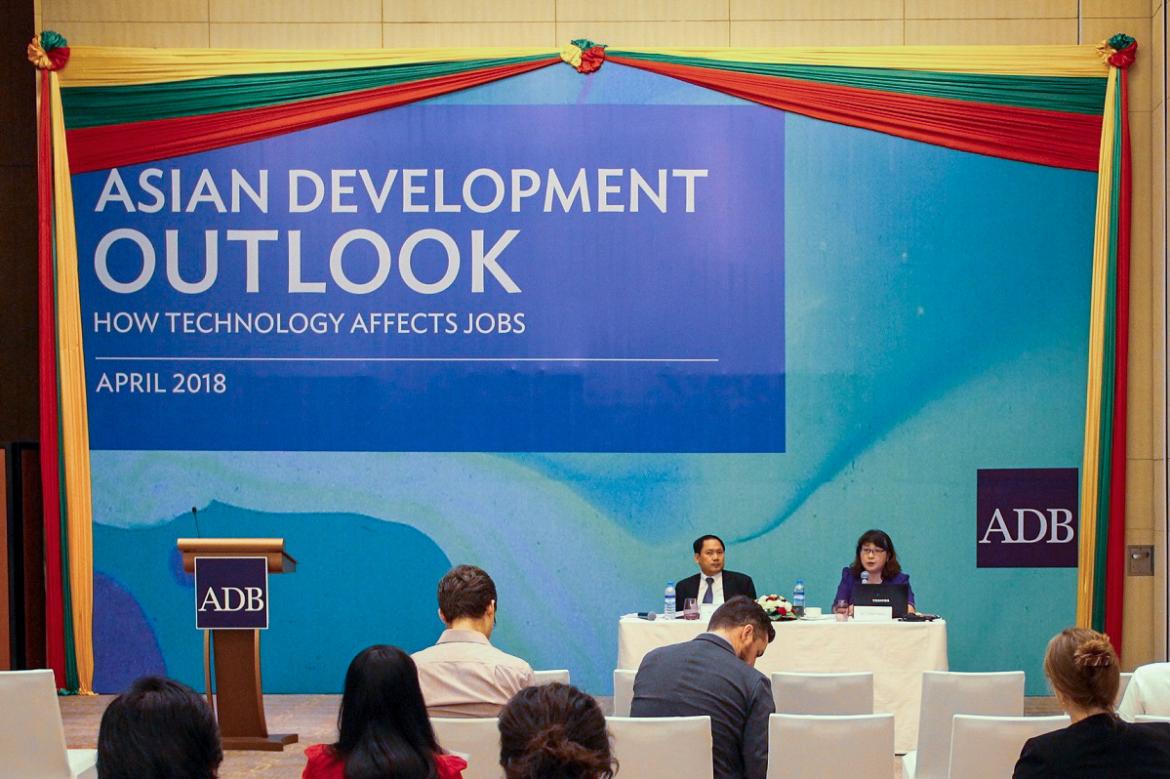
Asian Development Bank (ADB) urged investment reforms as Myanmar’s GDP growth picks up to 6.8 percent in 2017 from 5.9 percent in the 2016 fiscal year
YANGON — Myanmar’s GDP growth picked up to 6.8 percent in 2017, from 5.9 percent in fiscal year 2016, according to the Asian Development Outlook 2018, which urged greater liberalisation of foreign direct investment (FDI) procedures. Ms. Yumiko Tamura, the principal country specialist at the Asian Development Bank and author of the report’s Myanmar chapter, said that while the government has made progress in liberalising and rationalising FDI procedures, there is still scope for further policy improvements. She recommended shortening the time-requirement for the screening and approval of investments and removing restrictions on certain activities, including foreign equity holdings and capital repatriation by foreign businesses in Myanmar. -

The number of Japanese companies’ investment in Thilawa Special Economic Zone (SEZ) reached over 45 as of March in the 2017-2018 fiscal year: most are investing in the manufacturing sector
Japanese firms have invested most in productivity sector in Thilawa Special Economic Zone and the number has reached over 45, according to the zone management committee. "Most companies entering the zone are from Japan. There are about 45 or 47. They mostly invest in manufacturing sector," said Dr Shwe Hein, secretary of Thilawa SEZ Management Committee. Businesses from 17 countries are investing in the zone and out of 89 factories approved, 39 are said to be running. Till March in 2017-2018 fiscal year, a total investment of about US$400 million had come to Thilawa SEZ under the special economic zone law, according to Directorate of Investment and Company Administration.
Business News
Copyright © 2014 Business Information Center All Rights Reserved.







